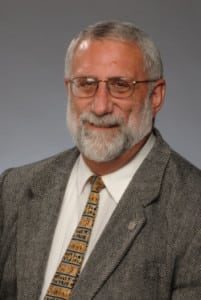
The classical model served civilization for almost 1,000 years and produced extraordinary minds and developments in our history globally. Today, pragmatism and the desire to prepare students for jobs often seems to rule educational institutions. Indeed, today’s schools often create students who are more like widgets! This approach often leads parents to ask the wrong questions when evaluating schools. Dr. Roy Atwood helps parents think about the right questions to ask so that your student experiences the best of what education has to offer. Enjoy!
 Dr. Roy Atwood received a philosophy degree from Dordt College, attended Westminster Theological Seminary and studied Journalism and Mass Communication at University of Iowa. In 1984, after teaching three years at Gonzaga University in Spokane, he and his wife, Beverlee, and their two children, Hannah and Ethan, moved to Moscow, Idaho. He spent the next sixteen years teaching at the University of Idaho, where he became a tenured professor, a two-time Fulbright Scholar, and eventually the Director of the School of Communication. From 2000-2015, he served as President, Dean and Senior Fellow of Humanities at New Saint Andrews College in Moscow, Idaho. From 2015-2016, he held the position of Abraham Kuyper Distinguished Professor at Morthland College in West Frankfort, Illinois. Currently, Dr. Atwood and his wife live in Buçimas, Pogradec, Albania, in southern Europe where he is Faculty of Humanities Distinguished Professor and Administrator at Nehemiah Gateway University.
Dr. Roy Atwood received a philosophy degree from Dordt College, attended Westminster Theological Seminary and studied Journalism and Mass Communication at University of Iowa. In 1984, after teaching three years at Gonzaga University in Spokane, he and his wife, Beverlee, and their two children, Hannah and Ethan, moved to Moscow, Idaho. He spent the next sixteen years teaching at the University of Idaho, where he became a tenured professor, a two-time Fulbright Scholar, and eventually the Director of the School of Communication. From 2000-2015, he served as President, Dean and Senior Fellow of Humanities at New Saint Andrews College in Moscow, Idaho. From 2015-2016, he held the position of Abraham Kuyper Distinguished Professor at Morthland College in West Frankfort, Illinois. Currently, Dr. Atwood and his wife live in Buçimas, Pogradec, Albania, in southern Europe where he is Faculty of Humanities Distinguished Professor and Administrator at Nehemiah Gateway University.
Away with Widgets! How Classical Christian Schools Shape Persons, not Placeholders – Dr. Roy Atwood
Maybe you’ve heard of a fidget widget, a Twitter widget or a weather widget, to name a few?
Despite its playful name, a “widget” simply means a small manufactured item mass-produced for common usage. At its most basic, “widget” likely stems from the word “gadget”. It can serve as a placeholder or any representation needed in a scenario.
A widget could be a button, badge, or building block…a gizmo, scraper or thingy. Or, a widget might be a student. Maybe your student?
Competency-based schools often create “widgets-in-the-making”
Dr. Roy Atwood, a recent guest on BaseCamp Live, explains the problem with the current competency-based system of learning.
“There’s very little that goes on within higher education today globally where they really are concerned about the development of a person, the whole person, the whole of their lives, and I think that the dissatisfaction people have with their careers, their lives, the way in which the culture goes…it’s partly a failure of education and vision b/c they’re simply training people for entry-level jobs…not to flourish long-term.”
Parents are asking the wrong questions
BaseCamp Live host Davies Owens notes that pragmatism and the desire to prepare students for the workforce often leads parents to ask the wrong questions when evaluating schools.
Atwood agrees that, “Parents are not asking what they want their child to be at 40. They want them to have a job.” Too much weight is on the institution to provide more and more competency and skills. The end result is students who are narrowly educated and “trained” but not flourishing.
An emphasis on specialization rather than integration
For the last 1000 years, “Universities… focused on integrated, worldview-shaping education. They asked the great questions…”, says Atwood. “What kind of function do I serve vs. Who am I? The answers will affect your choices. Are you are a pagan lawyer in your job or do the claims of Christ make a difference?”
This attitude began to change at the end of the 19th century. In order to feed its nationalist interests, Germany was the first country to focus on “specialization” in education. This included a new emphasis on declaring majors.
Today’s secondary schools and universities continue this trend. They focus on technical development, competency and skill sets for entry-level jobs. 30% of college graduates don’t even work in the field they majored in and within 10 years many professionals change job fields, research shows.
According to Atwood, “You look at the Industrial Age and beyond and you see a lot of technical development but not in the areas of the sorts of things in life that make it enjoyable and meaningful. We’re great at the techno…the widgets…but not really good at the other stuff. What are the big picture values that we really want to encourage and support?”
Atwood warns schools to think hard about, “Reducing people to a function, with no life, culture or history…skills are left but nothing that makes their life beautiful.”
In the words of BaseCamp Live co-host Kelly Barbour, “the beauty of the well-rounded professional” should be our long-term goal.
A better approach: How Classical Christian schools form competent kids
In September of 2018, Dr. Atwood published a riveting research address called, Education as Symphony: Competence and the Harmonic Relations of Knowledge, Skills, Affections, and Values.
He proposed the metaphor of music to better understand a holistic approach to education that meets the needs of the whole person.
“Music has a delightful way of helping us see what it means to be human: it engages the mind; it requires considerable skill; it touches the emotions; and it is framed by our deepest values and beliefs….The qualities inherent in music are the same as those required in education. They hinge not merely on personal or single subject competence, but on holistic integration of a person’s knowledge, skills, emotions and values—in real time, literally in concert with others (making music together) and in front of others (enjoying music with others).”
Thankfully, the classical Christian model, based on the so-called “Seven Liberal Arts”, best promotes this intersection of knowledge, skills, affections, and value. Ultimately, this model leads a student to discover what makes him or her a truly flourishing human being.
And not a widget waiting in the wings.
Key Takeaway
Susan Schaeffer Macauley in her classic book, For the Children’s Sake, points out that the child is a person. “When we begin studying the person, the real child, we must serve who he is, not fit him into our schedules or plans.”
As a parent, are you first seeking the kingdom of God for your child…or a job? Is their school or university limiting them to “single subject competence”? Or are they being prepared in their “knowledge, skills, affections, and values”?
